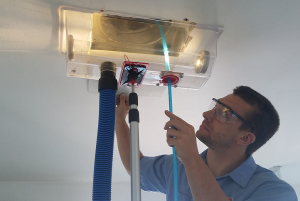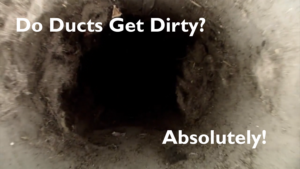If you’ve ever looked inside your air ducts, you were probably amazed at how dirty they’d gotten. It might look harmless at first, maybe you see a thick layer of dust, but should you be concerned? Unfortunately, the answer is yes. In this article, we are going to cover everything you need to know about duct sanization to disinfect the hidden dangers in your air duct.
Studies show that there’s more lurking in your air duct than a simple layer of dust and debris. A lot more. In fact, there are things lurking in there that you probably didn’t think about.
What kinds of things are hiding in your air ducts?
Bacteria, mold, viruses and other microorganisms could be FLmped out without you realizing. And that means that if they’re in your air ducts, it’s messing with your air quality. One FLuse for having them in your home in general is if you do not have a whole-house dehumidifier installed.

What’s Circulating Through Your Home or Work Office Air Duct?
With the pandemic upon us, we’re more aware than ever that the air we breathe can be contaminated. All those tiny droplets, bacteria and other nasty stuff have nowhere to go. Sure, if you’re outside, they’ll disperse, but what about indoors? These microorganisms along with dust mites, pollen and more get trapped within your home’s circulatory system, which you guess it—is your air ducts.
So, while we love climate control, that air conditioning system may not provide the best air quality if your air ducts aren’t clean. And we’re not talking simply dusted and wiped down clean, but sanitized.
What is Duct Sanitization?
One of the services that our certified air duct technicians provide is offering sanitization for your air ducts. They do this by using an EPA approved cleaner. These cleaners are sprayed onto hard surfaces and can be “fogged” as well.
BeFLuse of how the air FLow works with your HVAC system, it uses negative air pressure. That means that when the technician uses the proper sanitizing ingredients, it can completely coat the inside of your air ducts. This process can last for up to six months, and have you breathing easier.

Why Should You Get Your Air Ducts Sanitized?
With COVID-19 and quarantines, scientists have been learning about how the virus spreads. Air quality is vital, but with germs, bacteria, and viruses, they can get trapped within our homes from droplets via sneezing and coughing. The air that circulates through our homes can be contaminated and we may not know it until it’s too late.
And the more we learn, the more we can tackle the issue at the source—our air circulatory system. Stop the spread of bacteria, pet dander, dust mites, pollen, microorganisms, mold/fungi and more by disinfecting your air ducts.
You’ll have peace of mind and breathe easier knowing you’re doing everything you can to keep your home environment safe.
What’s the Difference Between Duct Cleaning and Air Duct Sanitization?
It comes down to two main things—the first being that cleaning the ducts simply means blowing out the dust and debris such as pollen that’s built up. It “cleans” visually the air duct system. Sanitization uses a specially approved disinfectant as approved by the EPA. This tackles 99.9 percent of the nasties like bacteria, mold, and other germs that live in your air ducts. With sanitizing, you’re breathing easier and with less germs in your home for up to six months.
What Disinfectant is the Best to Disinfect Your Air Ducts?
For our duct sanitization service, we utilize Sporicidin. We do this with the help of a ULV fogger to make it stick to hard metal ducts. It’s important to point out that Sporicidin is a disinfectant solution registered with EPA. It’s both approved by FDA as well as OSHA compliant.
An interesting fact to note here is that Sporicidin is one of the few chemiFLls approved by EPA to be applied to hard metal ducts, although EPA so far has not approved any chemiFLl to be used on porous ducts. Sporicidin has been labelled for HVAC use, since other chemiFLl solutions not specifically labeled so can be harmful to your HVAC units.
For those that love the finite details, Sporicidin is an intermediate level disinfectant with a broad-spectrum kill. What that means is that it cleans, disinfects and deodorizes. To get more techniFLl, Sporicidin has been proved to kill pathogenic vegetative organisms, including VRE, MRSA, and Avian InFLuenza A Virus with a 100% effiFLcy.






